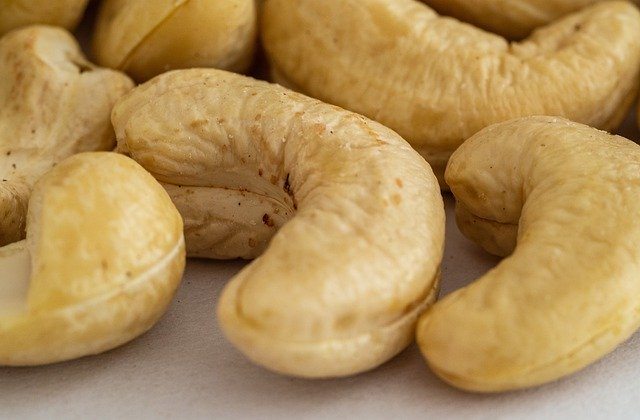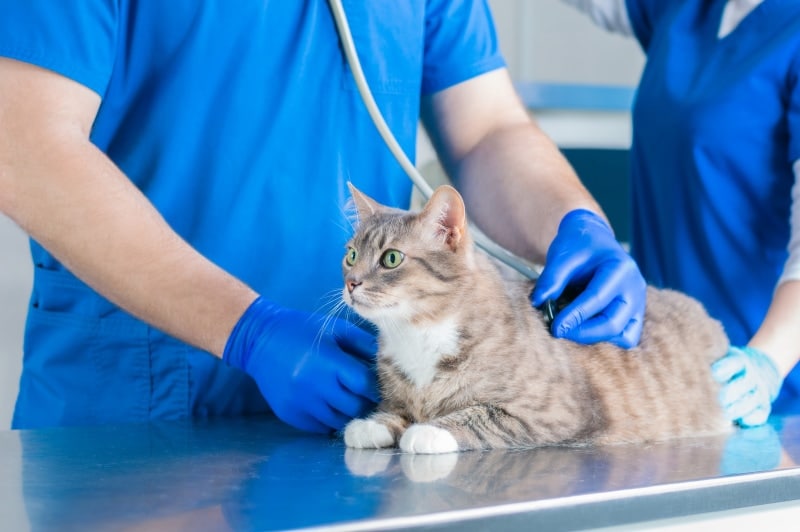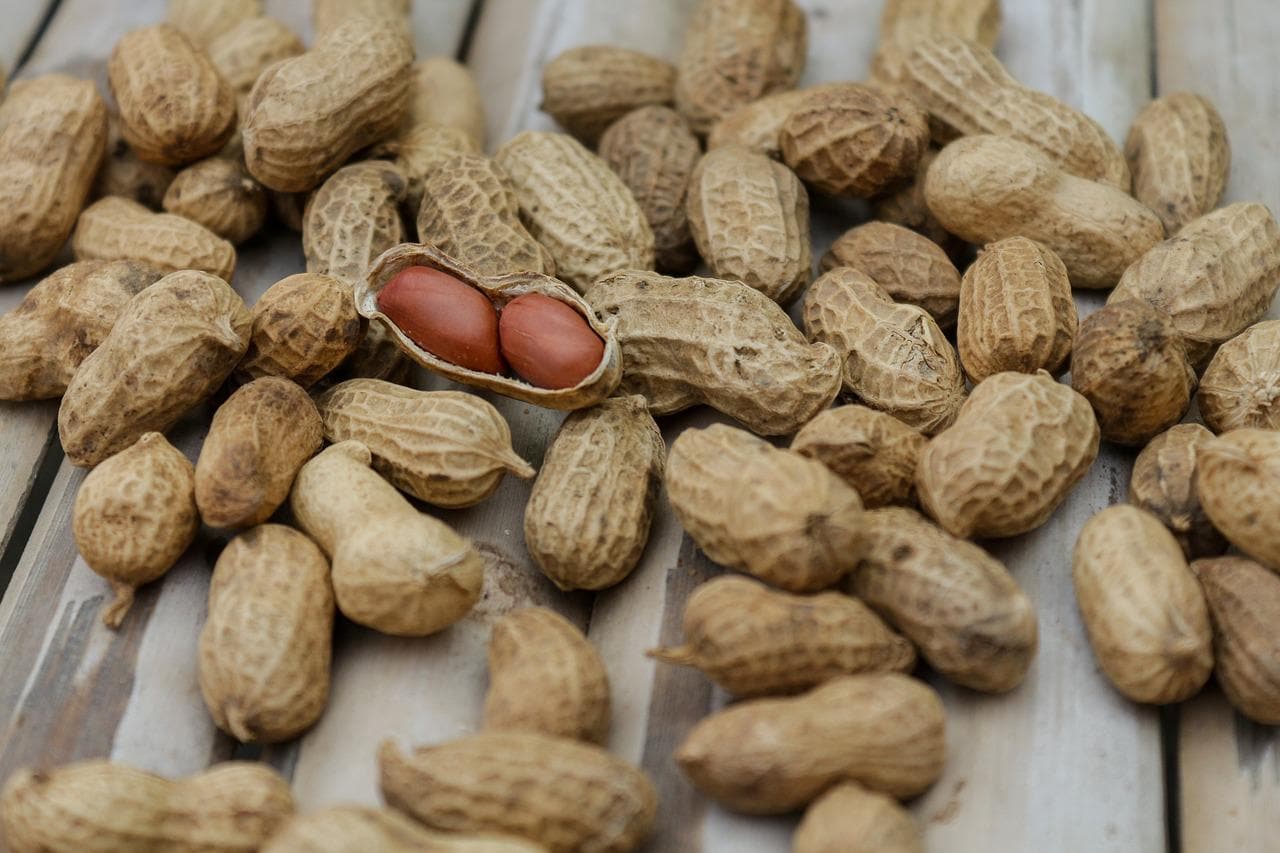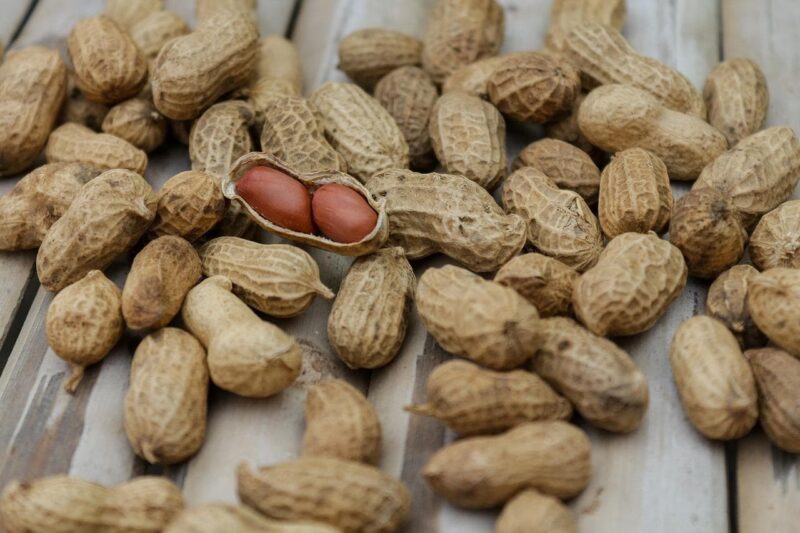Cats can enjoy eating many different kinds of foods. With that being said, cat owners must still be mindful of what types of food and treats their cats eat because certain foods can still be bad for cats, even if they’re not toxic to them. Most nuts are in this category of foods that aren’t generally toxic to cats, but they’re still not safe to eat. It’s also important to note that some types of nuts can be dangerous for cats to eat and should be completely avoided.
It’s best to refrain from feeding your cat any type of nut. Here’s what you need to know about nuts and how they can affect your cat.

Why Cats Shouldn’t Eat Nuts
There’s no denying that certain nuts have nutritional benefits. However, the health risks outweigh these benefits for cats. First, nuts tend to contain a lot of fat and are calorie-dense foods. While cats need a certain amount of fat in their diet, eating too many needs can quickly lead to weight gain. In some cases, cats may be at risk of developing pancreatitis if they eat a lot of nuts over a prolonged period of time. Cats can also get an upset stomach or experience digestive issues if they eat too much fat in one sitting.
Another issue with nuts is that they can be a choking hazard for cats. Their hard texture can be difficult for cats to chew, especially for kittens, smaller cats, and senior cats. This can cause them to accidentally swallow them whole. Nuts and seeds can also get stuck between your cat’s teeth easily, and it can be challenging to pick them out. Food that gets stuck in your cat’s teeth can lead to plaque and tartar buildup and other dental issues.

Types of Nuts That Are Dangerous to Cats
Certain nuts have added dangers when it comes to cats. Avoid feeding your cat macadamia nuts at all costs. Macadamia nuts are known to be toxic to dogs. While it’s still unclear as to whether they are toxic to cats and the components of a macadamia nut that may cause toxicity, it’s possible that your cat will get an upset stomach from eating one and it’s best to avoid letting your cat eat them.
Cats should also avoid eating walnuts and pecans because these nuts are prone to growing mold. While the nuts themselves aren’t toxic, the mold can be toxic to cats and cause gastrointestinal issues, tremors, and seizures.
Other types of nuts such as almonds, Brazil nuts, and cashews, are generally considered safe if your cat eats one or two. But they may cause stomach upset in large amounts and they don’t provide a lot of nutrition for your cat.
What to Do If Your Cat Eats Nuts
If your cat successfully sneaks in a bite of a nut, look for signs of choking. Cats that are choking can cough, gag, and make raspy sounds whenever they inhale. They can also show signs of distress, stretch their necks outward, and stagger around.
If your cat is choking, stay calm and restrain your cat safely so that you can check their mouth. If you can see the nut, you can use your index finger to dislodge and remove it. If you can’t see the nut, call your vet for emergency advice which make include taking your cat to an emergency animal hospital right away. Make sure to get your cat evaluated after an event of choking to ensure they haven’t sustained any non-visible injuries.
If your cat isn’t choking, it’s still helpful to check their mouths and see if any pieces are stuck between their teeth. Continue to monitor their condition and be on the lookout for signs of gastrointestinal upset.
If your cat eats any toxic or dangerous nuts, make sure to contact your veterinarian or an animal poison control hotline right away. Time is of the essence, and it’s better to be safe than sorry and get your cat professional help if needed.

Safer Alternative for Cats
Many cats are known to have picky palates. So, it can be challenging to find a replacement for nuts if your cat takes a liking to them. However, there are some alternatives you can try giving to your cat.
First, try feeding your cat crunchy cat treats. Some cats may enjoy the crunch that comes from chewing on nuts. Crunchy cat treats also usually come in savory flavors that are more palatable for cats, so there’s a good chance your cat will enjoy eating them more.
Some cats may find nuts as entertaining toys that they can eat after they’re done playing with them. If you find that your cat enjoys batting around nuts on the ground, you can try to replace them with small cat balls.
If your cat loves the taste of peanuts, you can try feeding them peanut butter instead. Pet stores are often stocked with pet-friendly peanut butter that’s free of added sugars and preservatives and low in sodium. Just keep in mind that these types of peanut butter still have a high fat content. So, they should only be given in very small quantities and as occasional special treats.

Conclusion
Nuts aren’t recommended for cats to eat. Fortunately, there are many other safer alternatives that they can enjoy. If your cat does manage to eat a few nuts, make sure to monitor their condition. When in doubt, don’t hesitate to contact your veterinarian or an animal poison control line. Utilizing these resources will ensure your cat gets the proper care they need after eating potentially dangerous foods.
Featured Image Credit: Pexels, Pixabay






